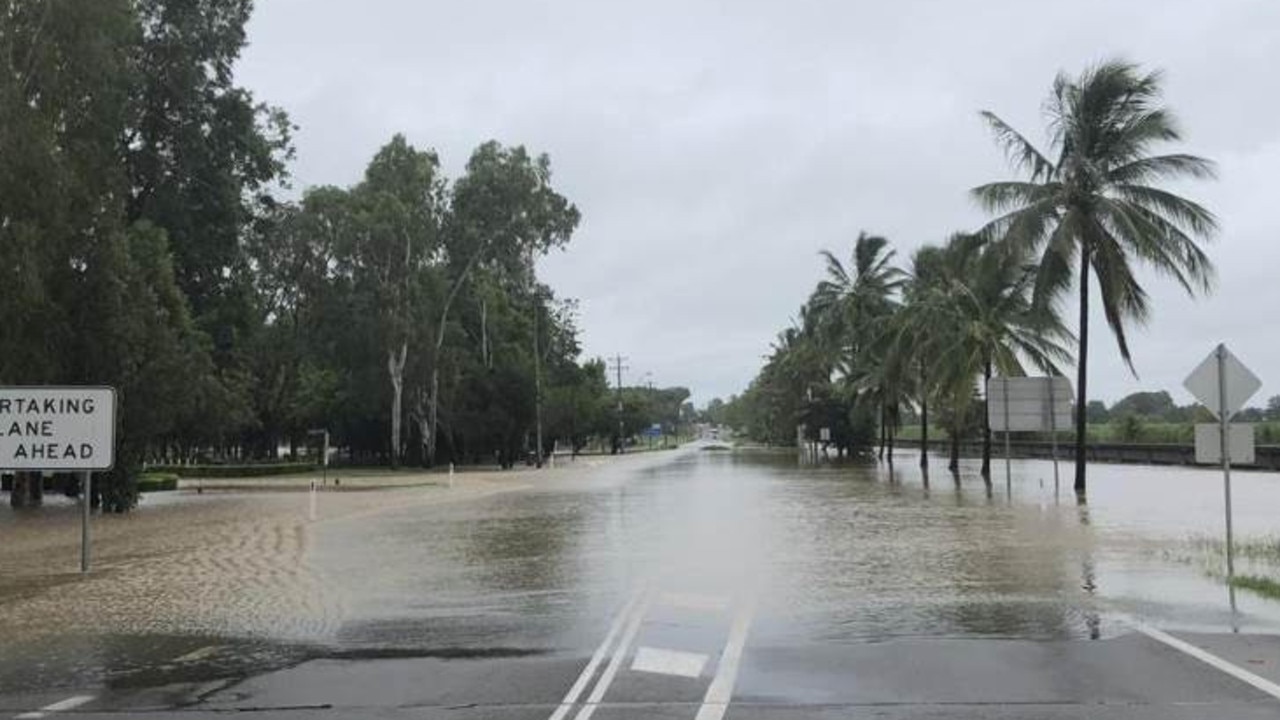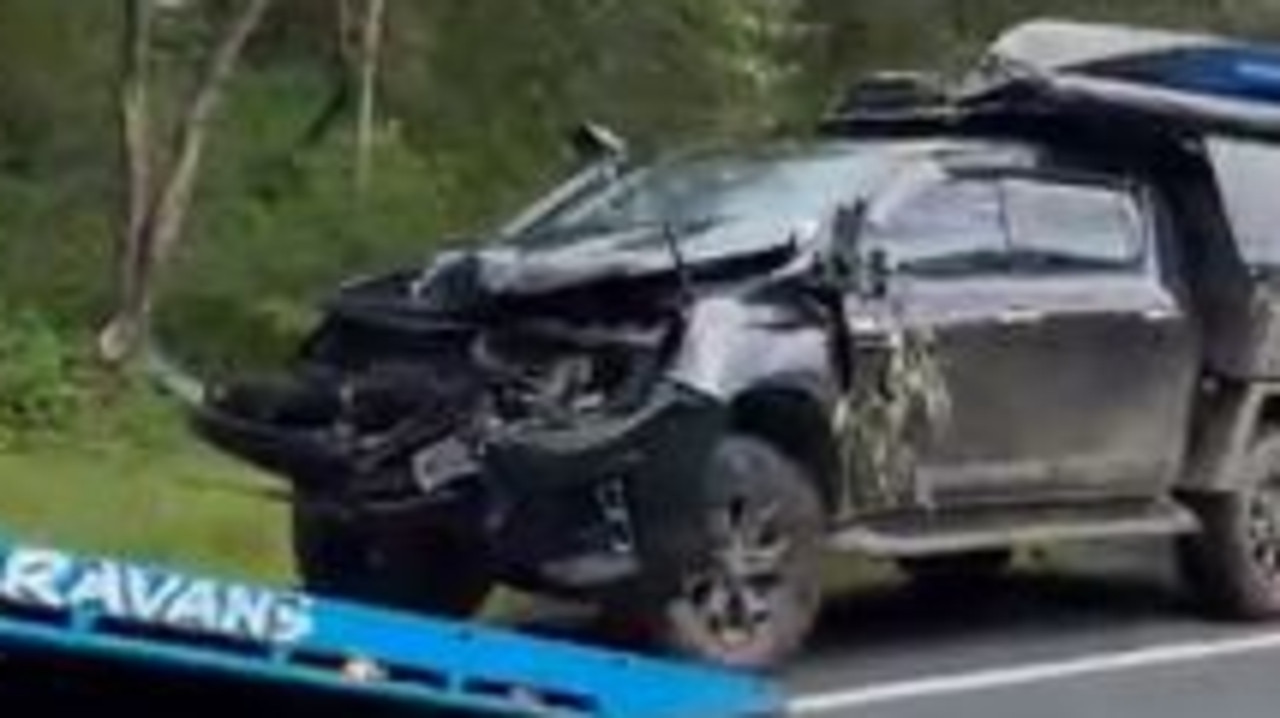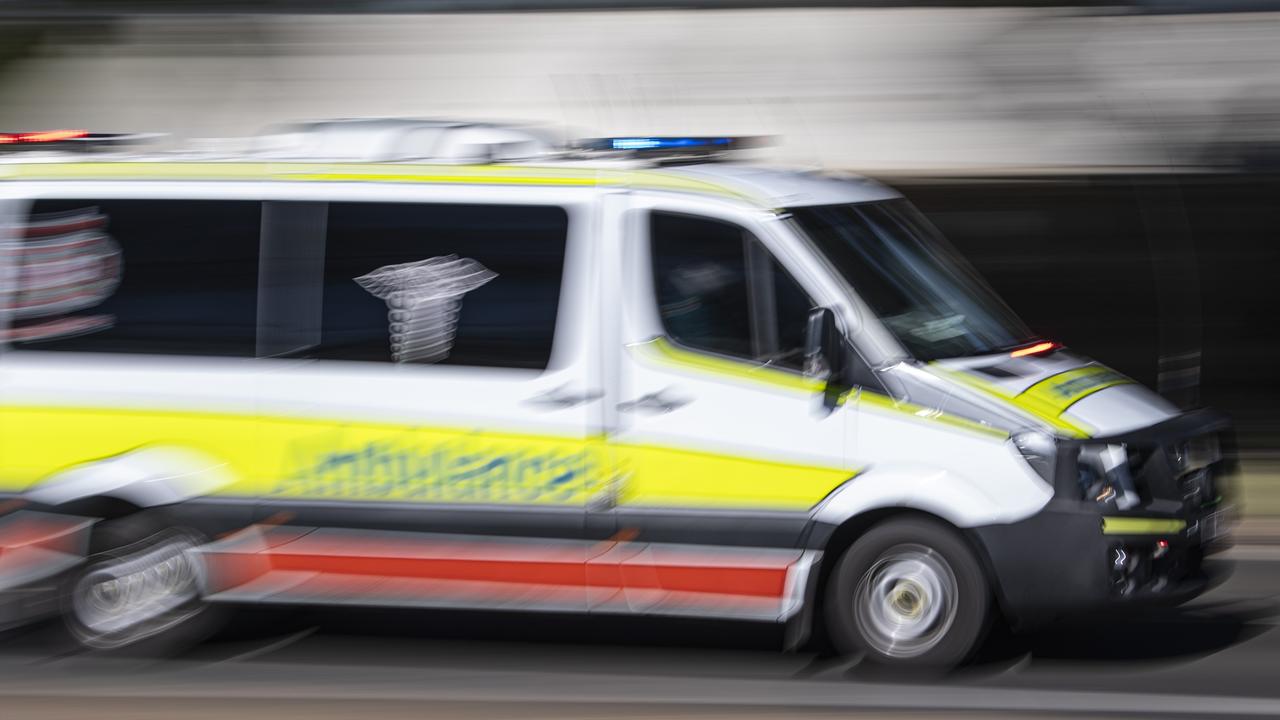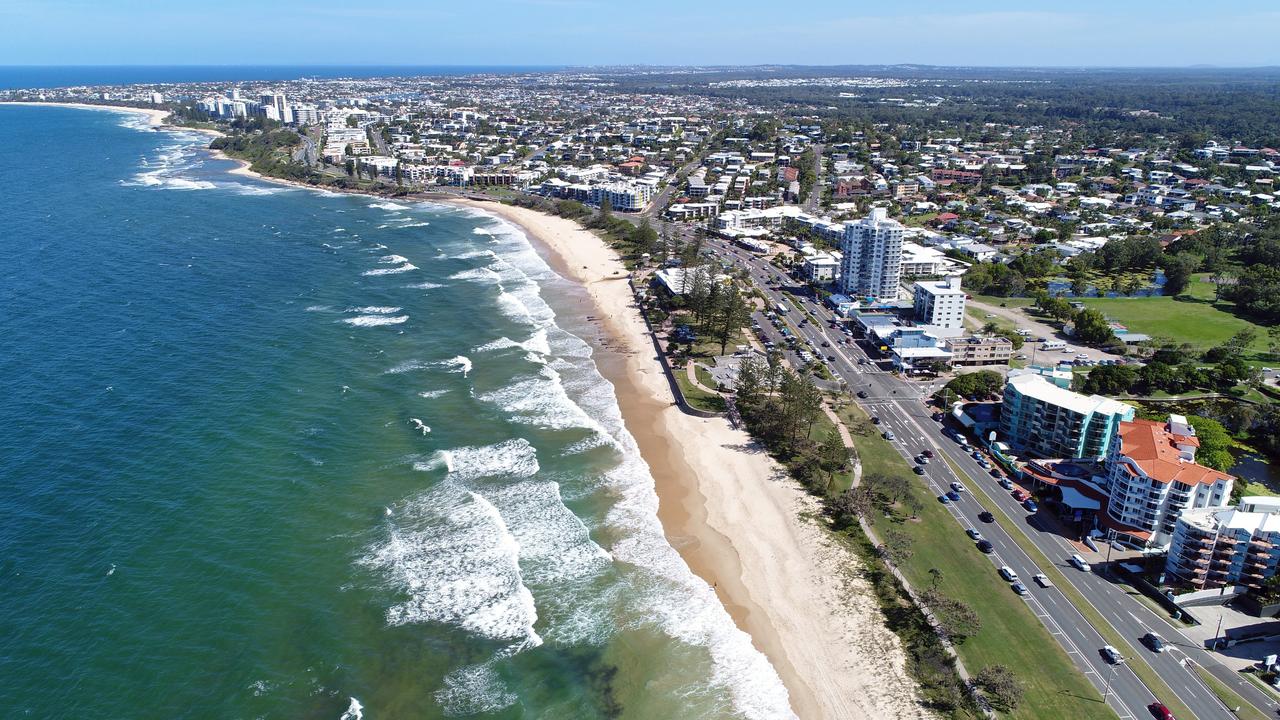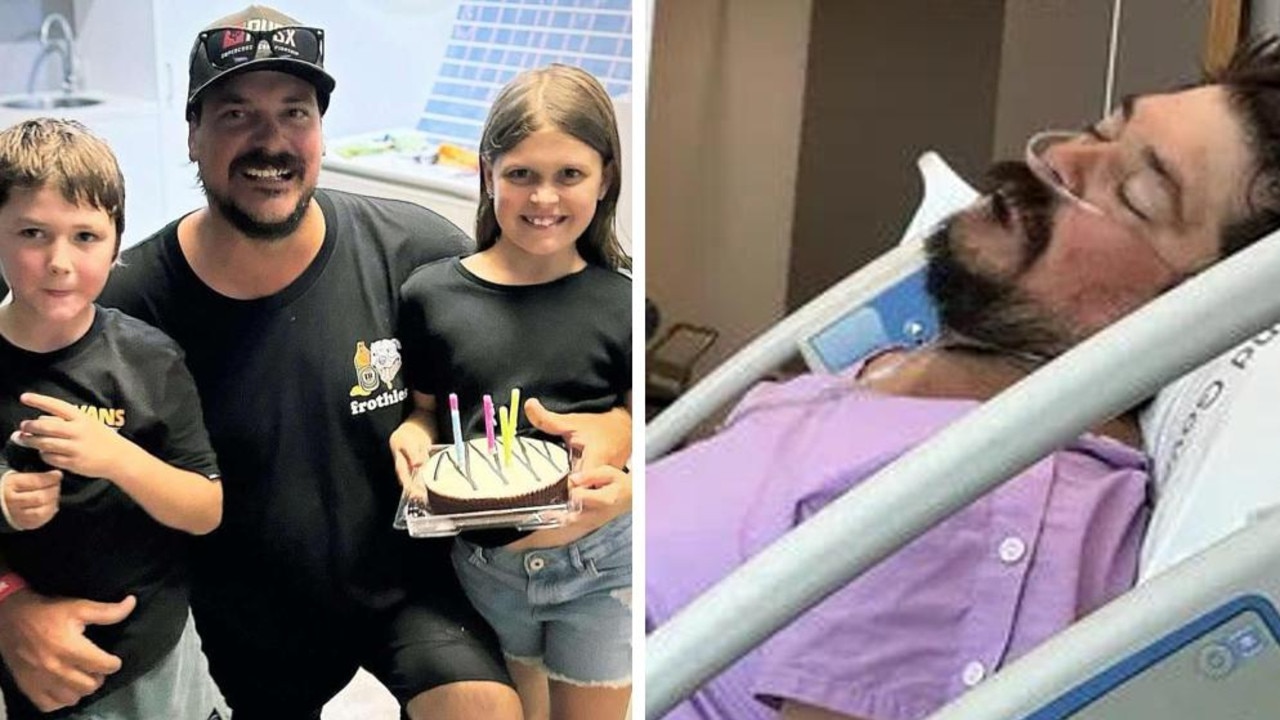Watch: Paraglider’s LifeFlight rescue after Rainbow Beach crash
GoPro footage has captured the awful moment a young paraglider crashed into a 100m cliff and his harrowing phone call for help while clinging to a bush, unable to feel his legs. SEE VIDEO.
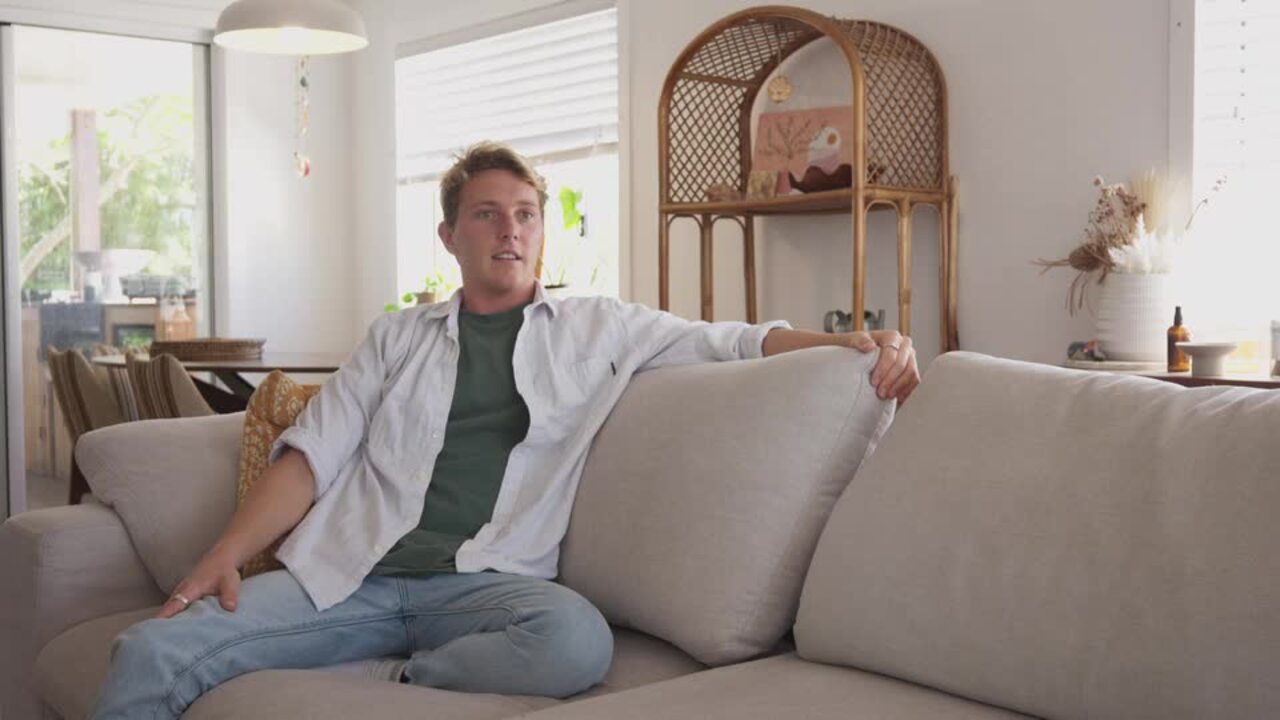
Sunshine Coast
Don't miss out on the headlines from Sunshine Coast. Followed categories will be added to My News.
A young, passionate paraglider has described how he found the courage to return to the sky after a shocking accident that broke his back and left him dangling over a cliff.
Gold Coast university student Maverick Robbins captured the moment he crashed his paraglider into a sandstone cliff at Rainbow Beach on his GoPro, depicting his desperate call for a rescue helicopter on October 22, 2024.
The footage showed the moment of impact, with Mr Robbins exclaiming in pain, telling himself to breathe as he endured his “excruciating” injuries.
In a video released by LifeFlight, Mr Robbins said he was “immediately very scared” and did not know the extent of his injuries.
Mr Robbins’ GoPro footage shows cables and ropes resting on coastal shrubs with the unmistakeable Rainbow Beach cliffs in the background.
A popular location with paragliders, Rainbow Beach has also been the site of a number of crashes over the years.
Young dad Brenton Owens was lucky to survive a crash in 2023 when his glider failed and he dropped 10m.
In 2015 another chopper rescue was performed when a man in his 40s lost lift and was dumped on the beach and in 2010 a 25-year-old injured his back when he fell 25m.
Mr Robbins’ rescue, however, was a particularly complex one because he had crashed into a cliff about 80m above the beach.
His legs were dangling over the drop as he gripped a small salt scrub to anchor himself to the unstable, sandy ledge.
The young adventurer had broken his back in three places and he could not feel his legs.
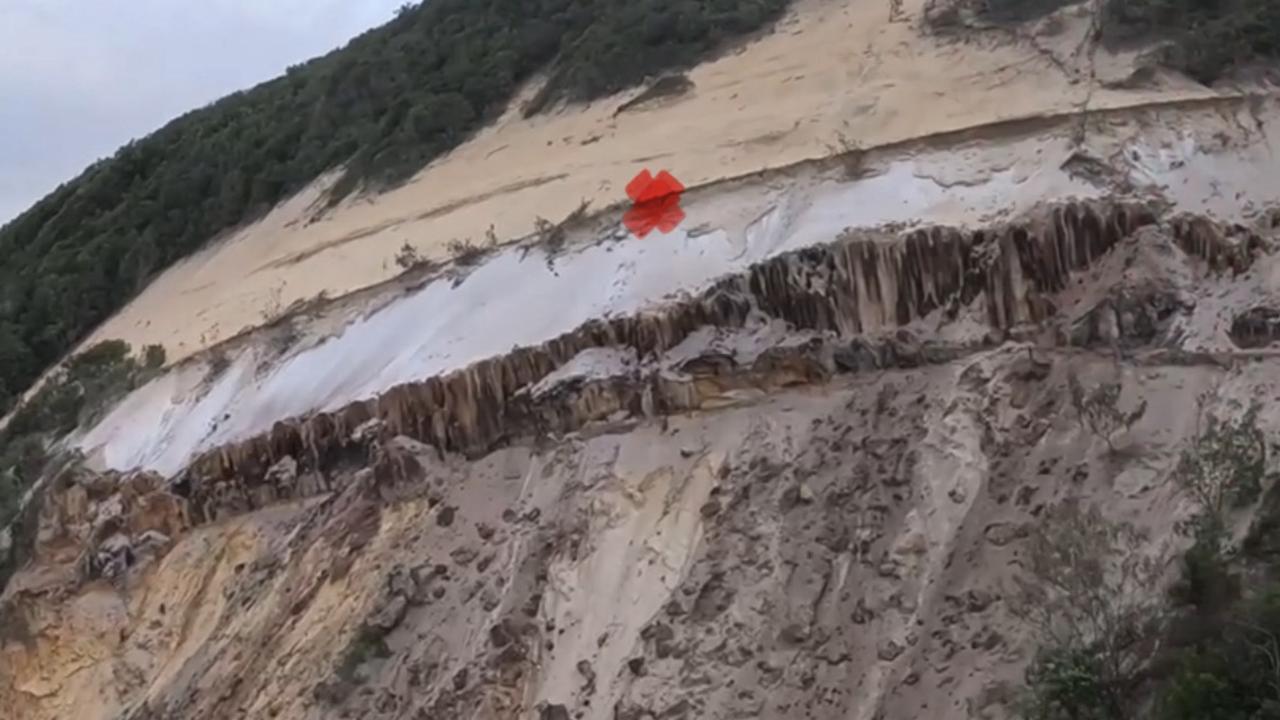
Mr Robbins’ own footage showed his arm outstretched on the sandy cliffs as he dialled the emergency number and told the operator he would need a helicopter rescue.
His paragliding buddy Vinny Brazier landed above him shortly after to disconnect his paraglider, and reposition Mr Robbins’ legs to steady his body.
Meanwhile, Queensland Fire Department crews were rushing to the crash as a Sunshine Coast LifeFlight helicopter was being prepped, with critical care doctor Carly Silvester, paramedic Santosh Broom, rescue crew officer Callum Good, pilot Aaron Regan and air crewman Ben Bourne inside.
“When the sounds of the chopper came overhead, it was the biggest relief,” Mr Robbins said.
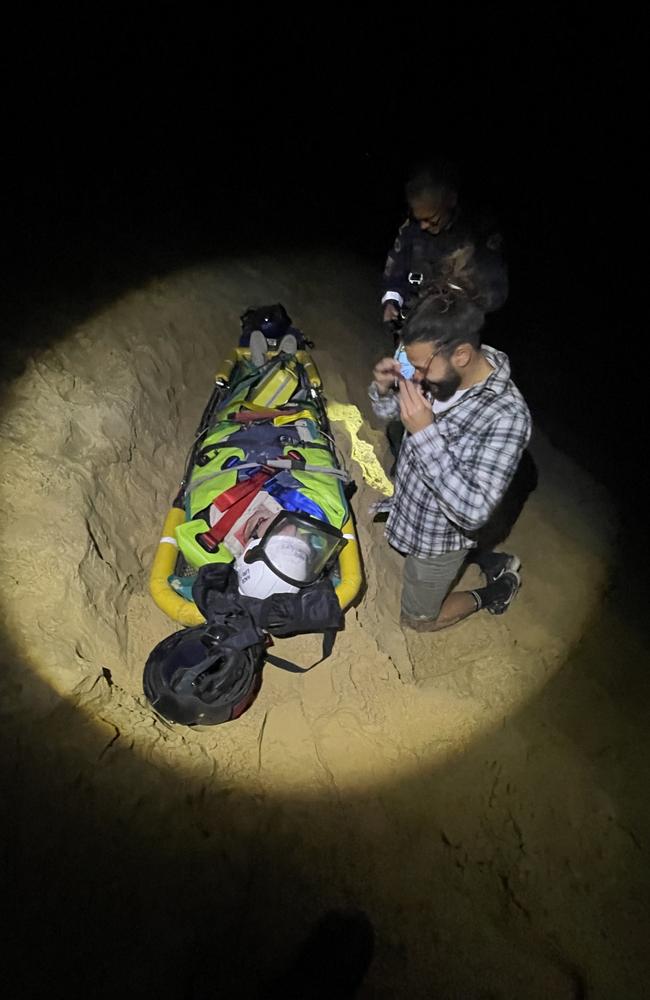
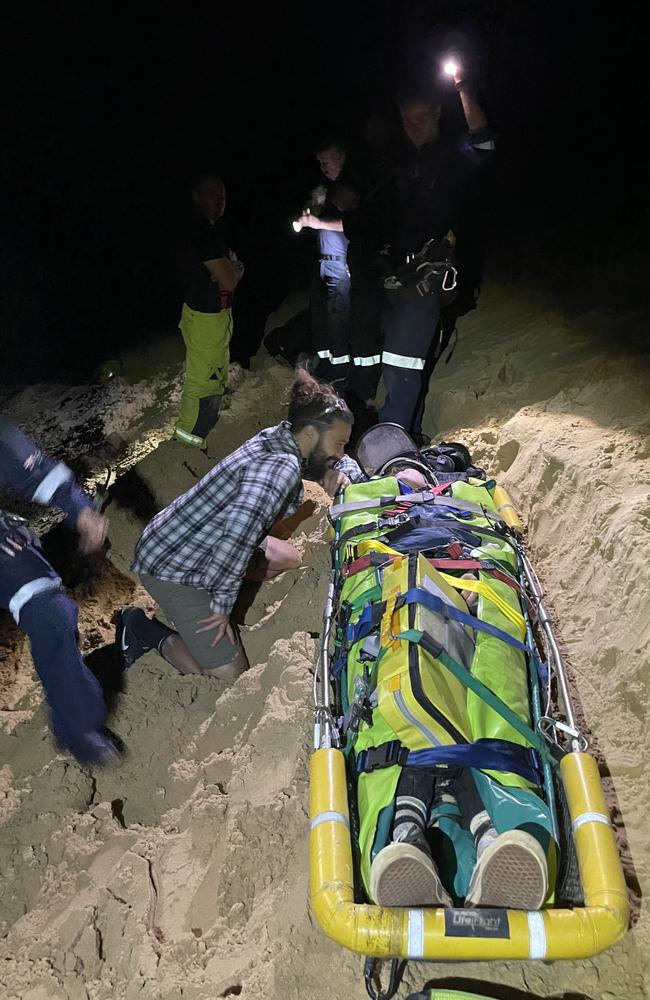
Mr Regan said it was one of the most challenging rescues in his 25 years of rescue operations, with the terrain, weather and billowing sand forcing the helicopter to hover about 60m above the cliff, more than twice the usual winch height.
The blast from the helicopter almost destroyed the sand structure supporting Mr Robbins, who recalled feeling the ledge erode from under his waist.
“Then it eroded from under my stomach, and thankfully, just before it got to my upper body, the helicopter flew further away,” he said.
With the help of firefighter crews, Mr Good and Dr Silvester worked to save Mr Robbins.
“Eventually … I opened my eyes and I looked up and I could see the rotors of the helicopter and the bright lights facing down on me,” he said.
“It felt so surreal, it felt like something out of a movie.”
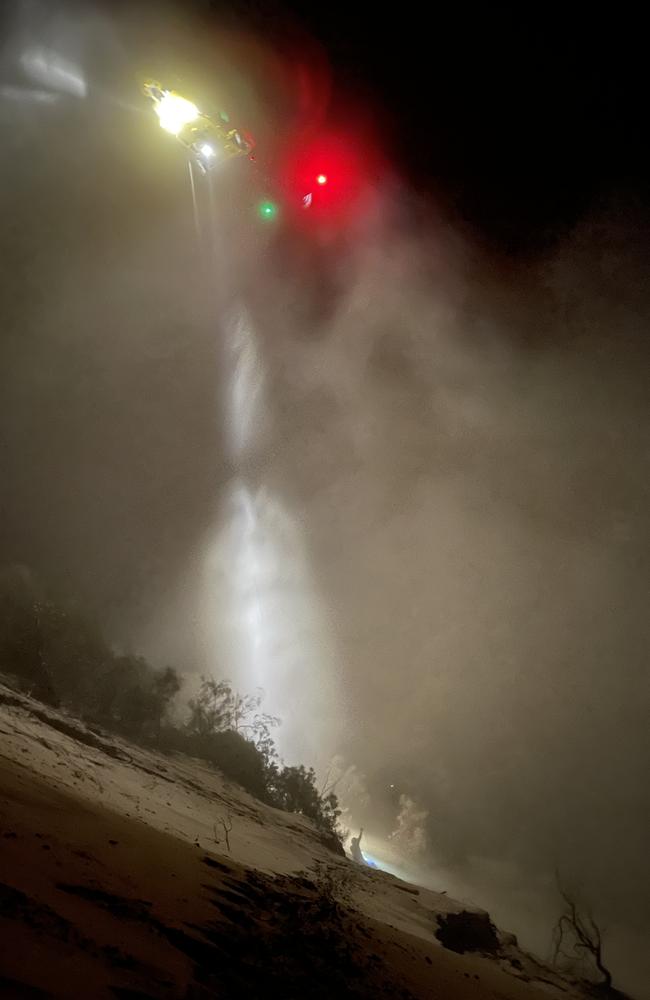
Three months later, following recovery, Mr Robbins shook hands and embraced his rescuers in an emotional reunion.
“The rescue crews undoubtedly saved my life. They are real-life superheroes,” he said.
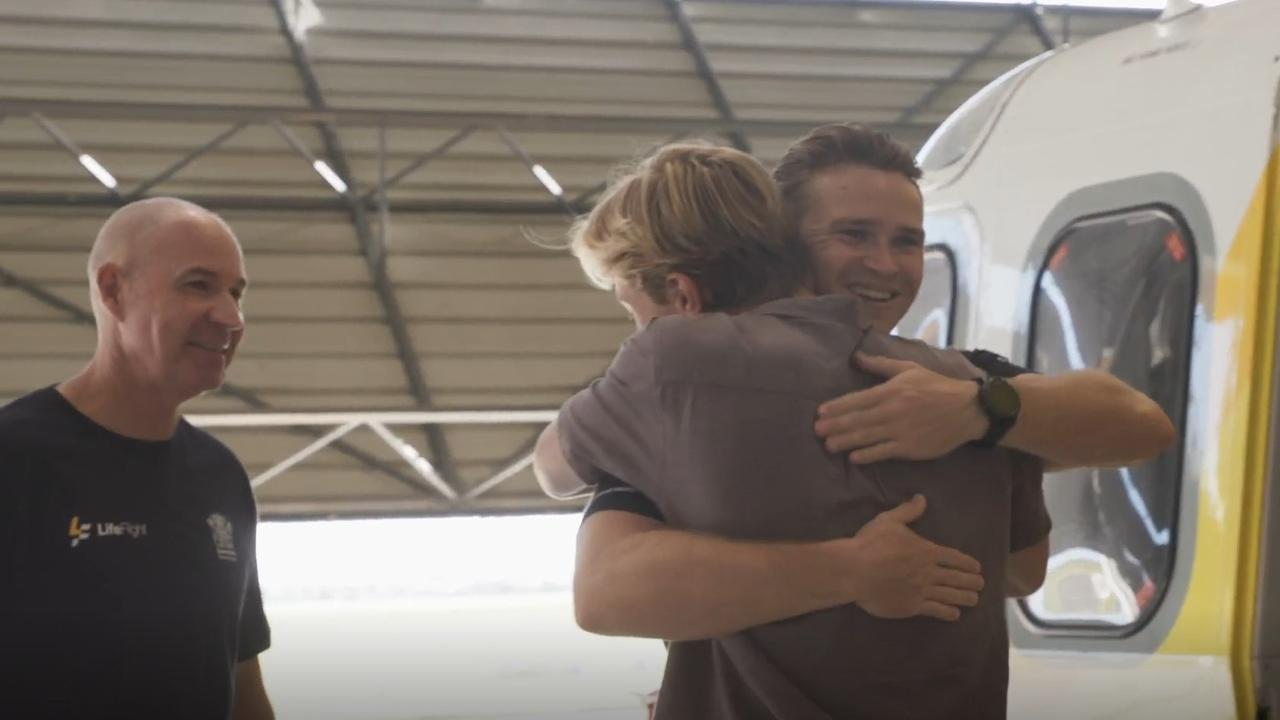
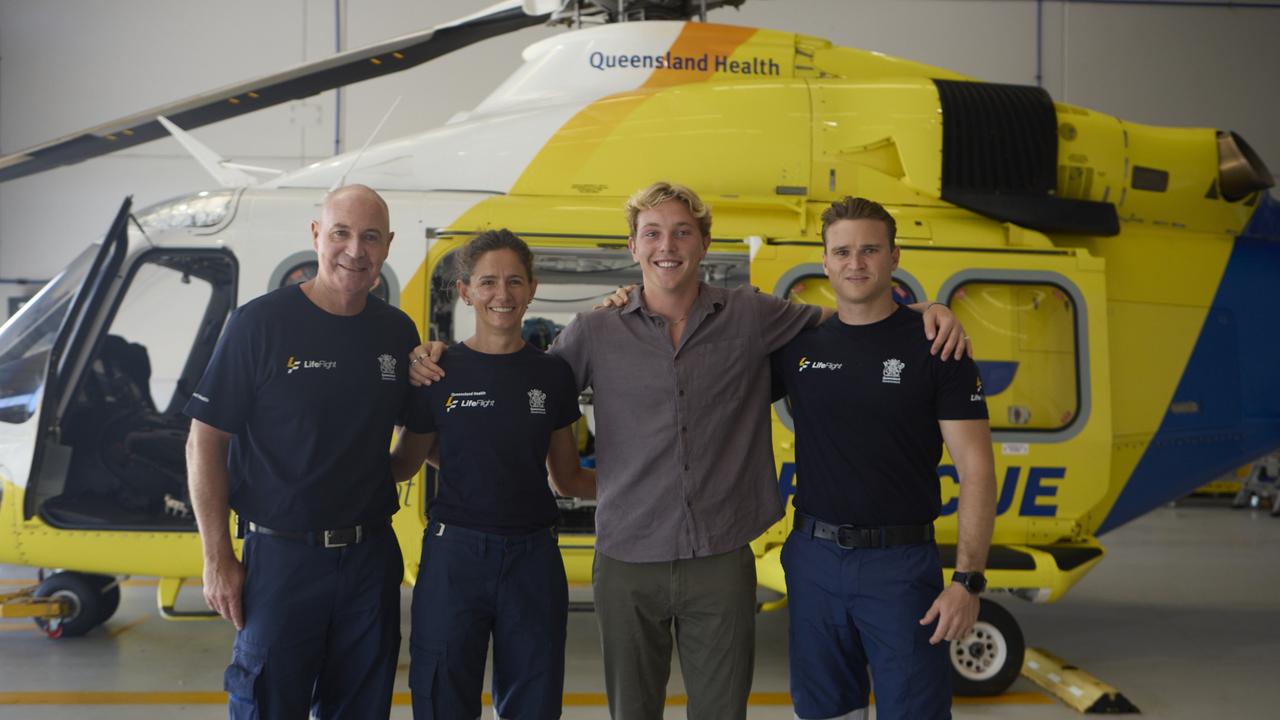
“As a kid, I wanted to become a helicopter pilot, and now that’s something that I have to do.”
Mr Robbins’ mum was also able to thank Mr Regan for his work rescuing her son during a video call.
“Thank you for all you do,” she said.
“He told me I wasn’t allowed to cry but I can’t guarantee that.”
Mr Robbins has since taken his first paraglide flight since the accident at Rainbow Beach.
He said the flight was “nerve-wracking”, and it took time and patience to get back into the sky.
“The challenge was overcoming the fear and doubt that came with the memory of the accident,” he said.
“As soon as I was flying again I was reminded of my love and passion for the sport.
“I’m definitely more cautious now, but I try not to let fear stop me from enjoying something I love so much.”
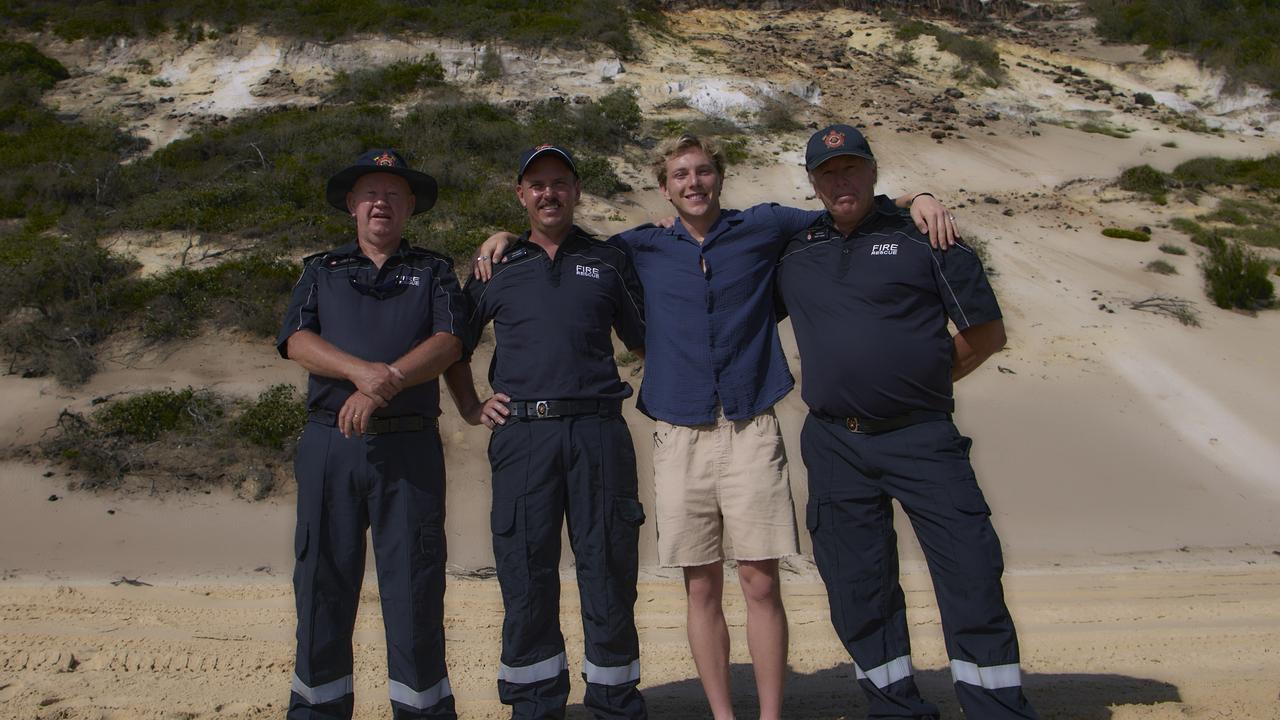
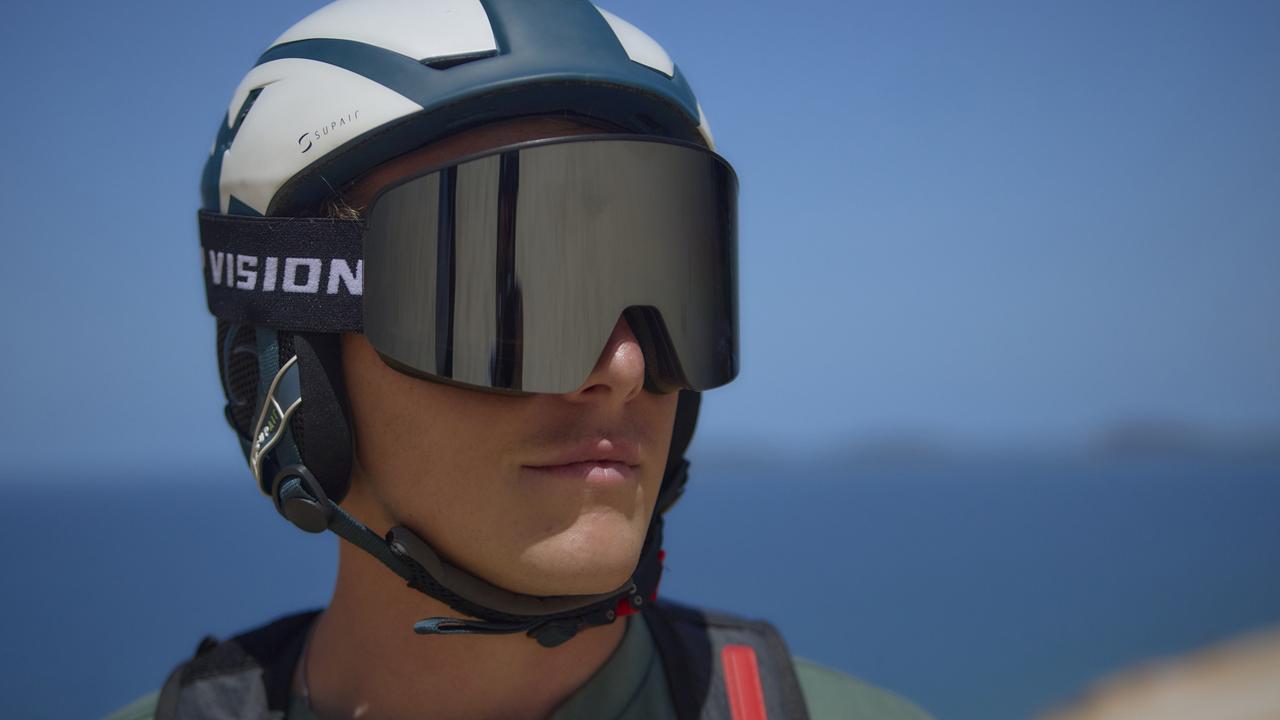
Mr Robbins said he was aware of the risks which came with paragliding, but never flying again would be “much more of a loss”.
He noted the intense experience of the accident, rescue and recovery had changed his perspective on life.
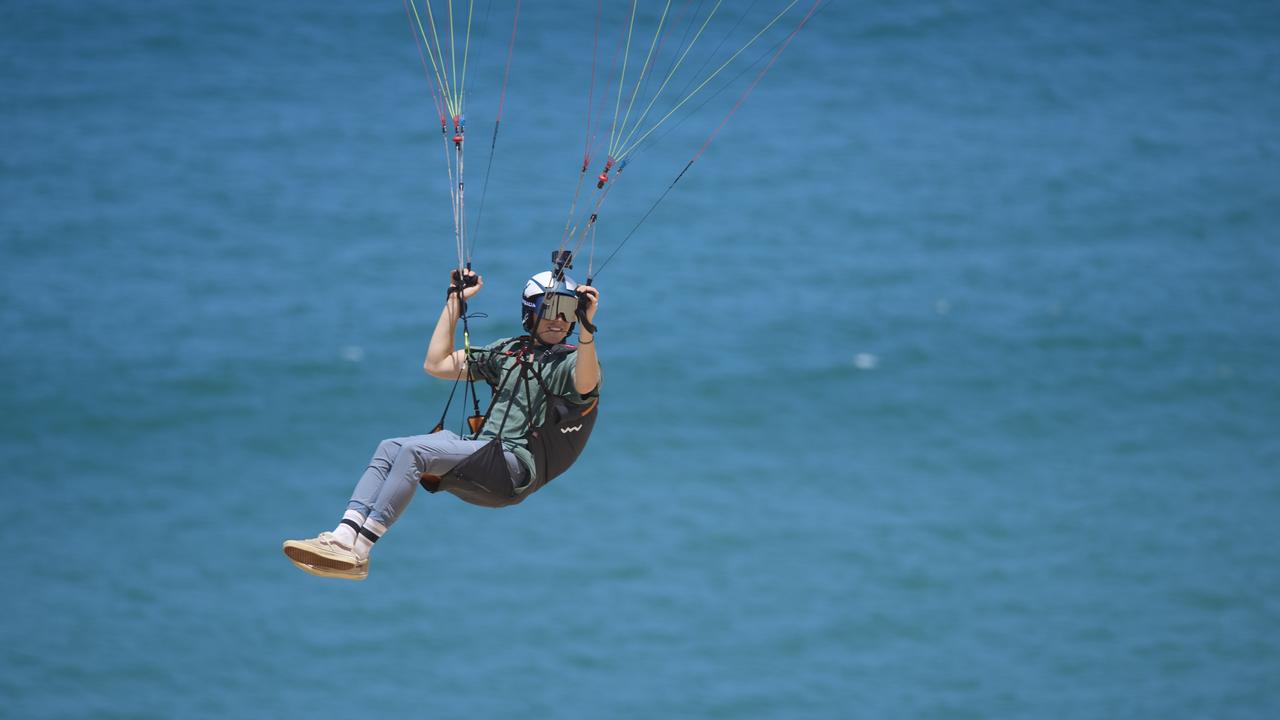
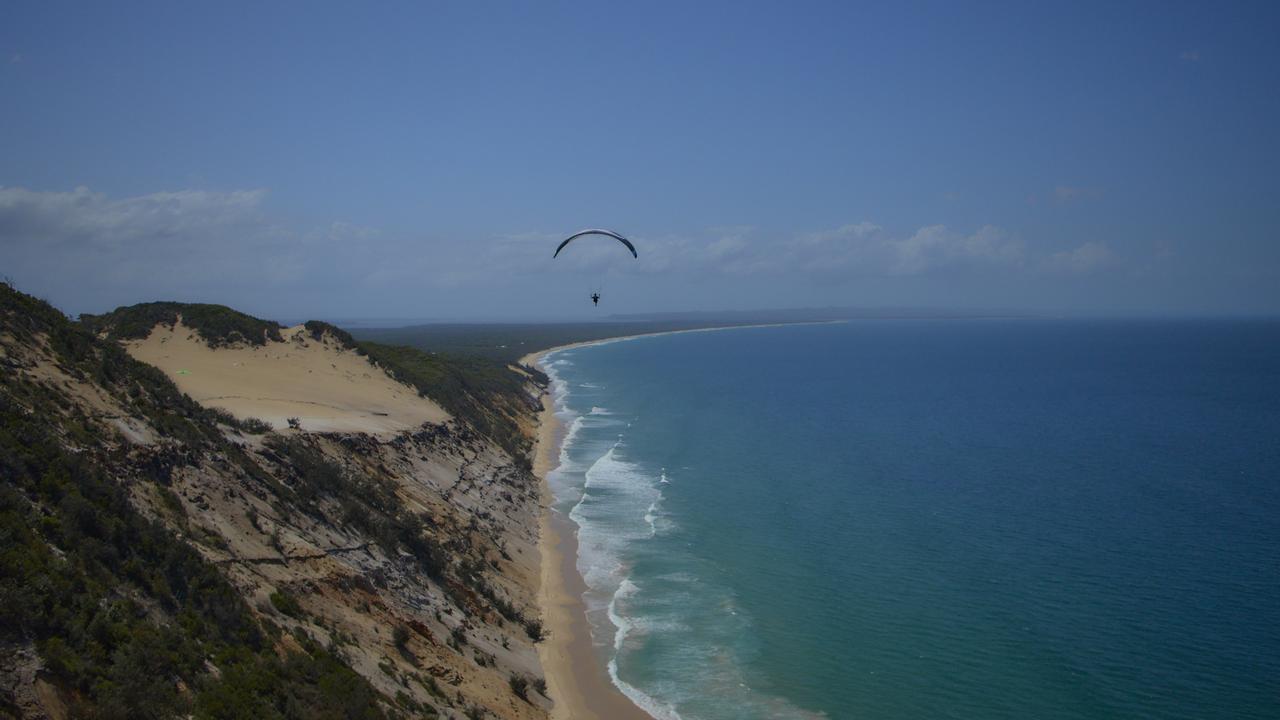
Mr Robbins said he felt “incredibly fortunate to be alive” thanks to his rescuers, and even more so to have made a full recovery.
After physiotherapy, he is feeling physically stronger than ever, and does not have any lasting pain.
“Mentally, the recovery was challenging, especially as someone who lives a very active lifestyle, but learning to be patient throughout the process ultimately made me mentally stronger as well,” Mr Robbins said.
“Knowing how differently my story could have ended has given me a new appreciation for life.
“It has reminded me how quickly life can change and that we can’t take even the simple things for granted.”
More Coverage
Originally published as Watch: Paraglider’s LifeFlight rescue after Rainbow Beach crash



